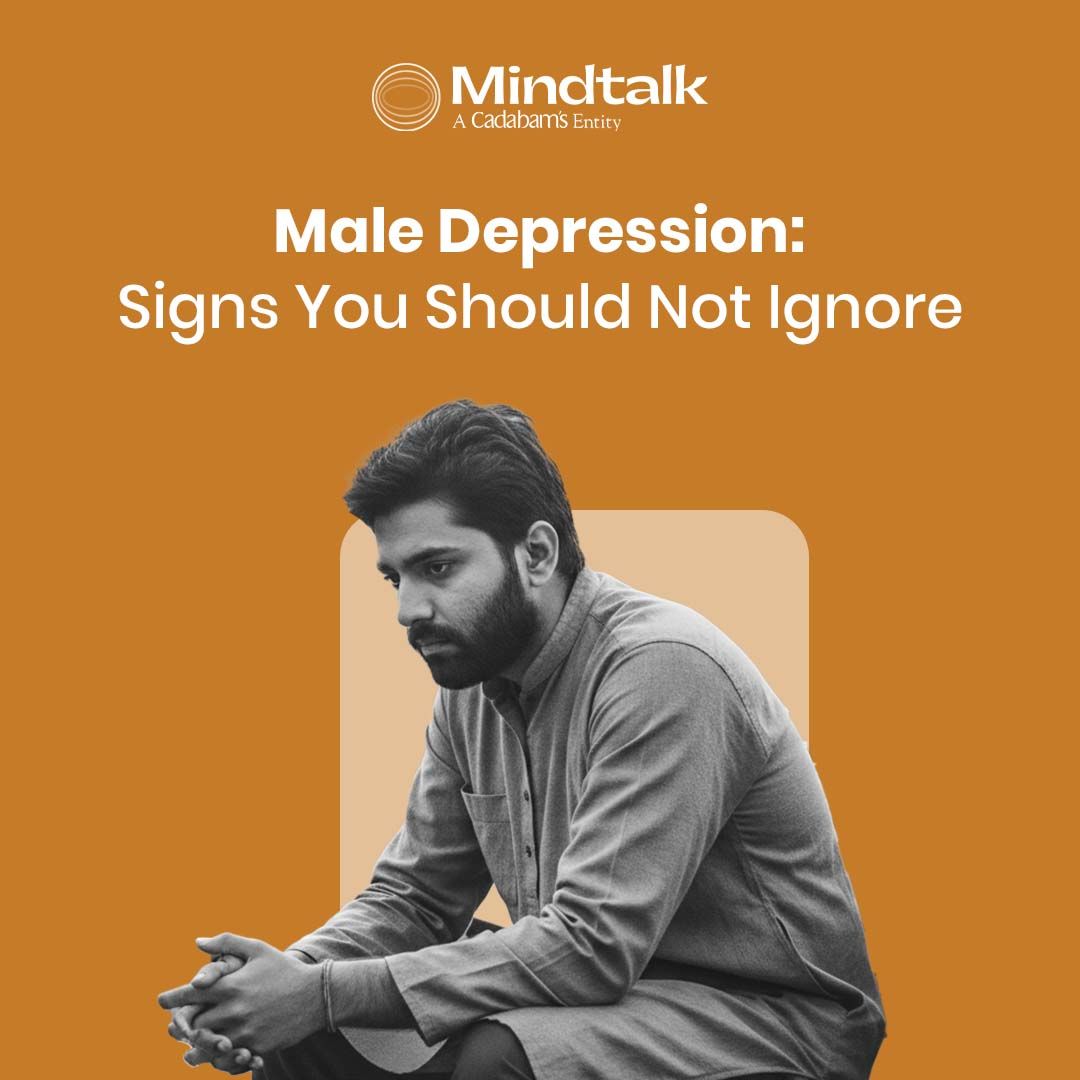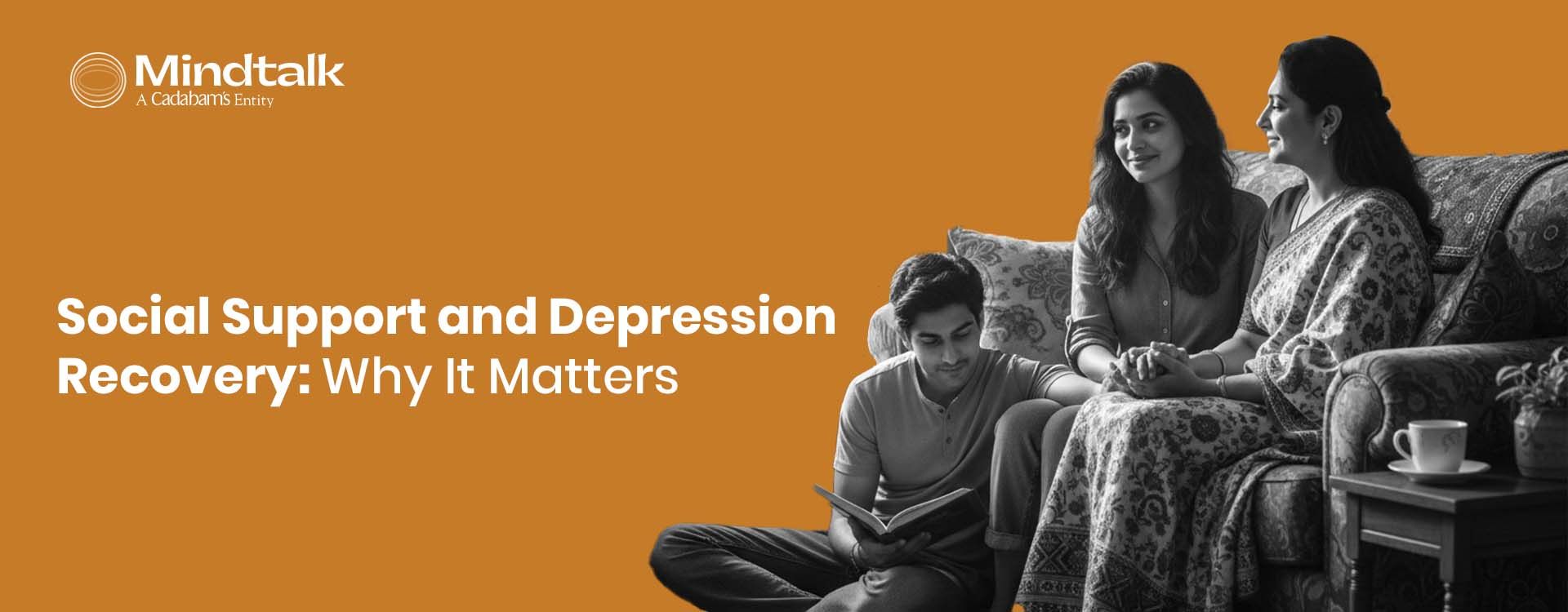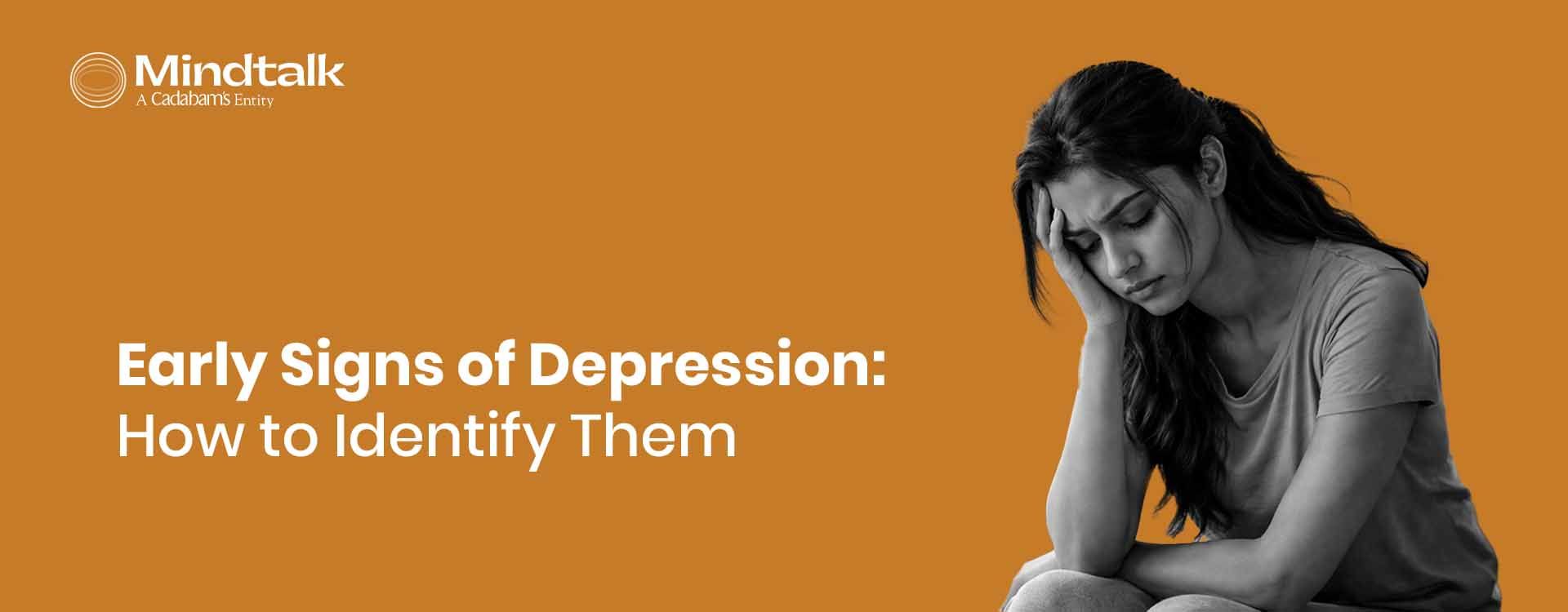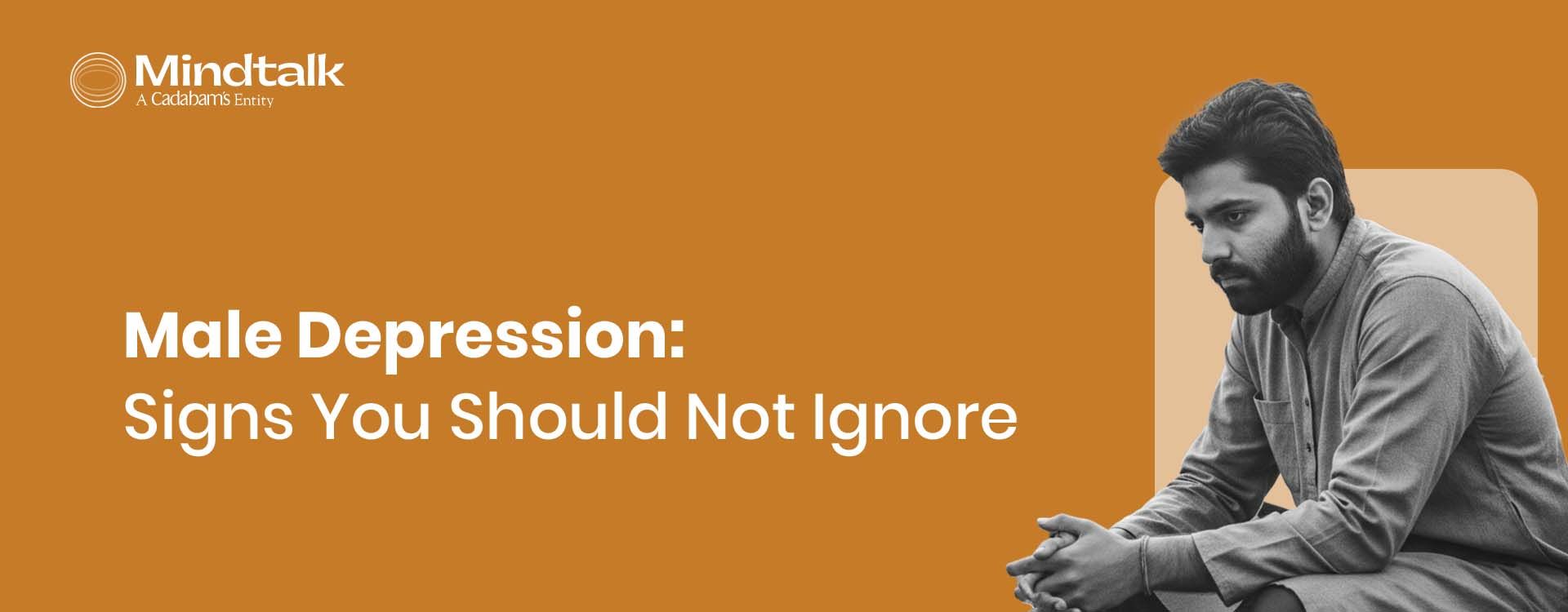Why Do So Many Men Struggle in Silence? The Unspoken Reality of Male Depression
Despite rising awareness, depression in men often remains hidden. Cultural silence, emotional suppression, and misunderstood symptoms make it a public health concern affecting careers, relationships, and lives, while keeping millions of men from getting the help they deserve.

Understanding Male Depression
Depression in men doesn’t always look like sadness. It may show up as irritability, overworking, or shutting down. These signs are often overlooked or misdiagnosed, delaying support and worsening long-term outcomes.
Common Symptoms in Men
Unlike common portrayals, symptoms of depression in men can look like:
- Anger or irritability
- Escapism through work, gaming, or substances
- Physical complaints like fatigue or pain
- Emotional numbness or detachment
- Risk-taking behaviour
- Sexual withdrawal or dysfunction
These signs of depression in men may seem like personality traits or stress, masking the actual emotional pain underneath.
Biological and Hormonal Influences
Hormonal changes contribute significantly to depression in men. Testosterone levels, stress hormones like cortisol, and changes in brain chemistry affect sleep, motivation, and emotional regulation. These biological shifts often intersect with life stress, amplifying significant depression symptoms in men, especially in midlife or under chronic pressure.
The Role of Societal Expectations and Masculinity Norms
Traditional gender roles tell men to “man up” and suppress vulnerability. This stigma creates a barrier in understanding depression in men, both for the individual and for those around him.
Toxic Masculinity and Emotional Suppression
From boyhood, many men are taught that strength equals silence. This belief encourages emotional suppression, making it hard to process grief, anxiety, or sadness. Over time, this bottling up leads to depression and anger in men, often mislabelled as mood swings or disinterest.
Media and Pop Culture Influence
Movies and TV often celebrate stoic male heroes who never cry or ask for help. This normalises emotional shutdown and discourages vulnerability. These portrayals reinforce the stigma around clinical depression in men, making it harder to accept or talk about real mental health struggles.
Barriers to Seeking Help
Men face many challenges when trying to seek support. Emotional literacy is one many aren’t taught to name or explore feelings. There’s also shame, fear of being judged, and cultural beliefs that therapy is “not for men.”
Add logistical barriers like cost, time, or lack of nearby services, and coping with depression in men becomes even harder. Without open dialogue or targeted support, many suffer in silence.
Silent Suffering: Hidden Signs to Watch For
Men often express emotional distress through action instead of words. Watch for overworking, substance use, social withdrawal, or excessive irritability. These behaviours may hide deeper issues like depression in young men or burnout.
Older men might show changes in sleep, appetite, or lose interest in activities they once loved. These symptoms of depression in elderly men often go unnoticed, mistaken for normal ageing or fatigue.
The Cost of Silence: Impact on Life and Relationships
When left untreated, depression in men affects all areas of lifework, parenting, decision-making, and emotional connection. It erodes confidence, intimacy, and overall well-being.
The Link Between Depression and Substance Abuse in Men
Many men turn to alcohol or drugs to escape emotional pain. This connection between alcohol and depression in men creates a cycle where substances numb feelings temporarily but worsen symptoms over time leading to deeper isolation and dependency.
Relationship Breakdown and Isolation
Depression in men and relationships often results in emotional withdrawal, miscommunication, and increased conflict. Partners may feel confused or rejected. Over time, this disconnection leads to loneliness, resentment, and further withdrawal, especially if the man doesn’t recognise or address his symptoms.
When to Seek Help: Recognising It’s More Than a “Bad Week”
Some signs should never be ignored:
- Loss of interest in things once enjoyed
- Low mood lasting more than two weeks
- Constant fatigue, even after rest
- Sleeping too much or too little
- Changes in appetite or weight
- Emotional numbness or unexplained anger
- Feeling hopeless or like a burden
These are symptoms of depression in men, not just a rough patch. Early recognition leads to earlier recovery.
Pathways to Healing: What Really Helps
There is no one-size-fits-all cure for depression in men, but effective recovery is possible. Therapy, movement, community, and lifestyle shifts tailored to men’s needs can foster lasting emotional health.
Male-Focused Therapy Approaches
Men may benefit from:
- Cognitive Behavioural Therapy (CBT)
- Acceptance and Commitment Therapy (ACT)
- Group therapy with male peers
- Anonymous digital platforms
These offer safe, action-oriented spaces to unpack emotions—making treatment more relatable and effective for depression in men.
Role of Fitness and Physical Activity
Movement supports recovery. Strength training, running, or team sports can boost dopamine, improve sleep, and build confidence. For many, it also reduces mood swings and depression in men, offering structure and purpose.
The Power of Peer Support and Vulnerability
Support groups, community circles, or simply one safe friendship can shift the entire healing process. Vulnerability creates space for honesty, breaking the silence around signs of depression in older men and allowing emotional safety to grow.
Changing the Narrative: Promoting a Culture of Openness
To break the silence around men's mental health, we must first change the environments they live and work in.
- Model emotional safety in families, schools, and workplaces
- Teach boys that expressing sadness is okay
- Encourage male colleagues and peers to talk openly
- Create non-judgemental environments that support emotional honesty
- Promote conversations around mental health before crisis strikes
- Help others recognise symptoms of depression in men early
- Shift the definition of masculinity to include vulnerability and self-awareness
Breaking the Intergenerational Cycle
Unaddressed trauma and emotional repression often pass down through generations. Fathers, uncles, coaches—all can influence how boys learn to handle mental health.
Teaching Boys Emotional Intelligence
Teaching kids to name their emotions, listen to others, and express themselves clearly helps prevent future signs of depression in men. Schools and parents both have a role in normalising this education.
Fathers as Emotional Role Models
Men who show vulnerability teach their sons it’s safe to feel. Whether it’s through honest conversation or therapy, fathers can disrupt patterns and offer a healthier emotional blueprint—transforming outcomes for depression in men.
How Mindtalk Can Help Men Overcome Their Depression
At Mindtalk, we believe recovery starts with safety and connection. Our team understands the unique challenges of depression in men from stigma to silent suffering. Whether you’re experiencing clinical depression in men or noticing changes in someone you care about, Mindtalk offers judgement-free, evidence-based support.
We provide therapy, group spaces, and digital access tailored to every stage of life, from depression in young men to symptoms of depression in elderly men. Seeking help isn’t weakness—it’s strength.
Meet Our Depression Management Experts





